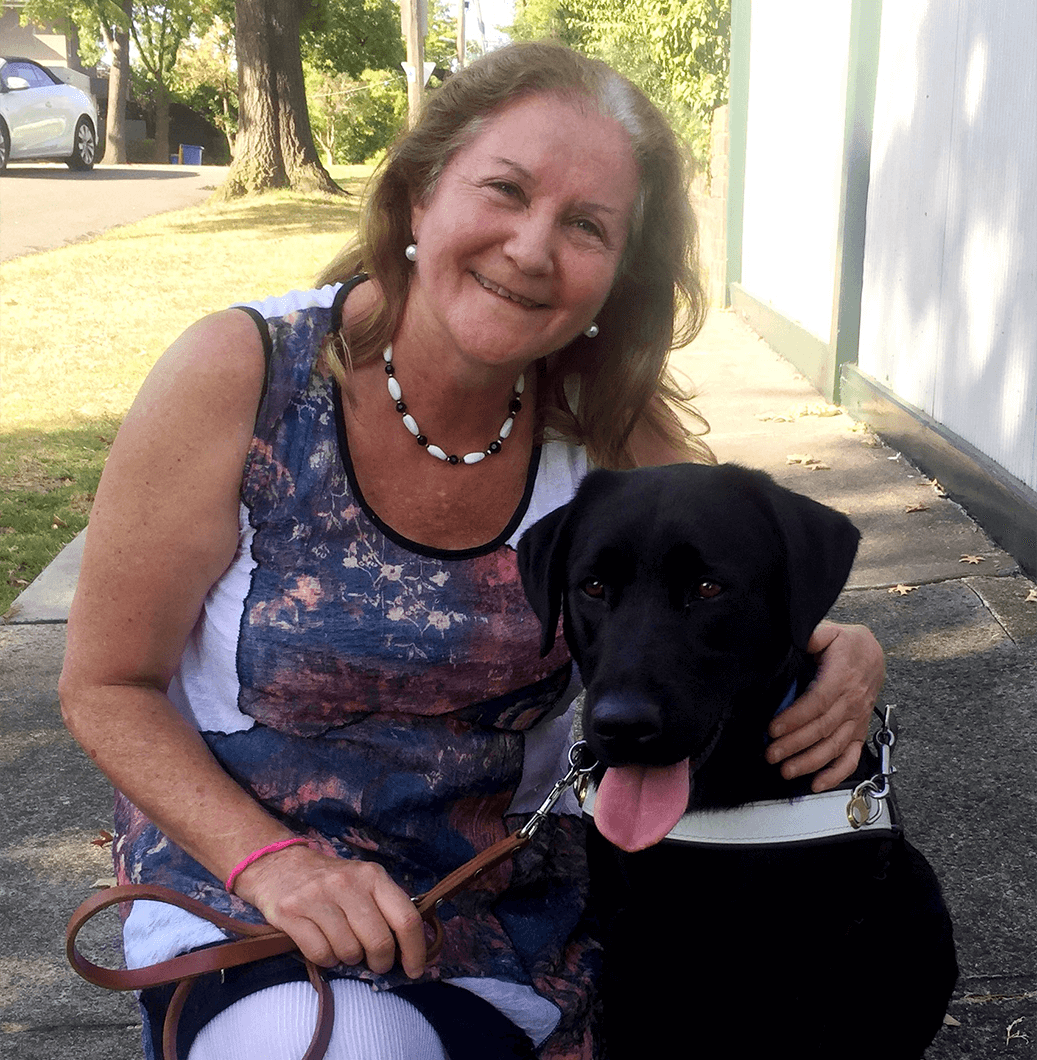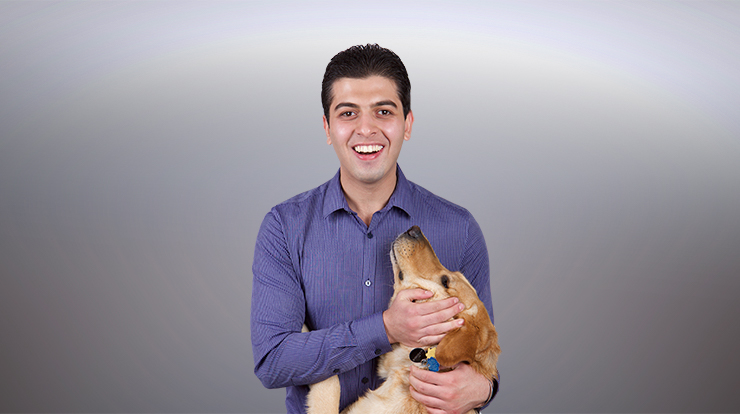 Maribel Steel and Dindi
Maribel Steel and DindiTwo years ago, I joined Glen Waverly Toastmasters in Melbourne, Australia, to improve my speaking style. By using the traditional program’s Competent Communication manual, I quickly learned that if I followed the objectives given for each speech, my presentations would likely have all the elements required to keep the audience engaged. I could step with confidence to each new point in the speech.
I recently took on a new challenge to improve another aspect of my life. I am legally blind and was paired with a guide dog to act as my seeing eyes. Dindi, a two-year-old black Labrador retriever, and I are learning the many skills needed to become an effective guide dog team. Together, we are learning how to work as “competent communicators.”
Through this process, I discovered that Toastmasters and guide dog handlers share similar communication principles. Both endeavors require clear objectives and the application of a tried-and-true system. Like all Toastmasters strive to do, Dindi and I are continually working to improve our mutual understanding.
Toastmasters appreciate organization and structure in speeches. We learn that to capture the audience’s attention, it helps to start with a catchy opening. As a guide dog handler, I must be sure Dindi is listening; getting her attention is like giving her a catchy opening. Using vocal variety, I may say her name or give a command in a certain tone so that she stays alert. Like humans, guide dogs listen and respond best when they are engaged and inspired by the task at hand.
A Toastmasters speech includes main points and sub-points to present the speaker’s ideas. When the thread of the story is presented in logical order, audiences can follow the presentation points to a conclusion.
Like humans, guide dogs listen and respond best when they are engaged and inspired by the task at hand.
In a guide dog team, both partners learn specific commands, presented in logical order, to safely navigate through the environment. These commands function something like the main points in a speech. They keep Dindi’s attention and reassure her she’s on the right track. She stays alert to my word prompts, moving us smoothly from point A to point B, from a seat to a door, or from a bus stop to a curb. Every step requires clear, logical, and mutually understood directions.
In a Toastmasters speech, we use transitions—a subtle shift of tone or ideas that seamlessly lead to the next point, so we can continue our story with self-assurance. Likewise, Dindi has learned to make subtle physical shifts to gently guide me away from an obstacle and back to the safe path. These small adjustments allow us as a team to shift positions without awkward movements, so we both walk forward with confidence.
When a Toastmaster nears the end of a speech, they incorporate a clear conclusion, reinforcing key points and leaving the audience with a call to action or a memorable ending. The evaluation wraps up the process; feedback is constructive and delivered with care.
The guide dog team works to achieve a similar, satisfying outcome. Dindi guides me where I need to go, laying out my path and ensuring my safety. I offer gentle corrections to help her improve and am constantly reinforcing her good behavior with praise.
When Dindi and I reach a curb, sit at a café table, or find the correct door, our successful navigation signals a triumphant moment. We understood one another perfectly and achieved a shared goal with certainty and trust. Our connection grows even stronger.
The result is a stream of memorable moments on our shared pathway, demonstrating the same clarity, growth, and rewarding outcomes that we strive to reach as Toastmasters.
Maribel Steel received the 2018 Toastmaster of the Year award from her club, Glen Waverly, where she is vice president public relations. She is a Melbourne-based author, motivational speaker, educator, and dog lover. Visit her website www.maribelsteel.com



 Previous
Previous
 Previous Article
Previous Article

